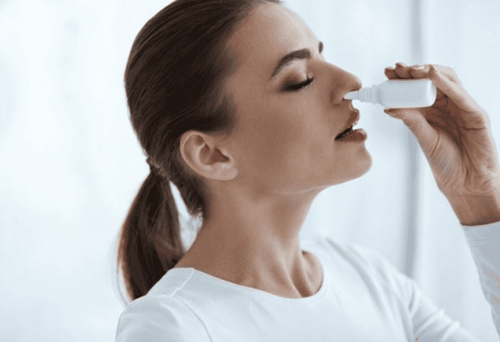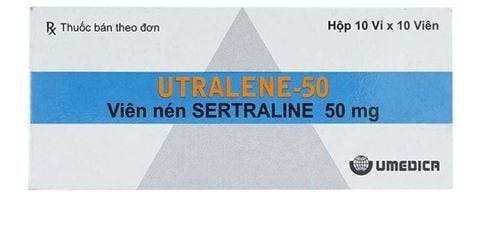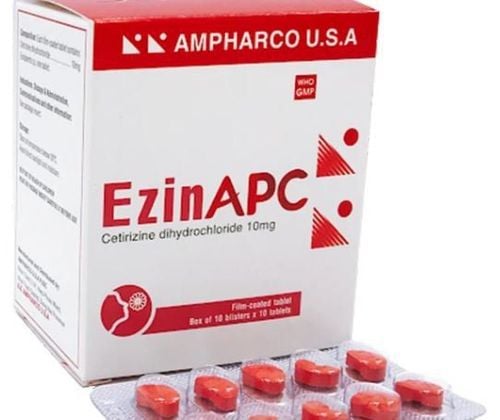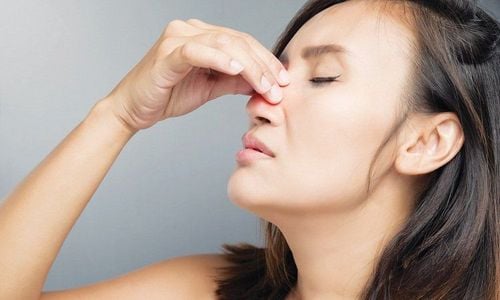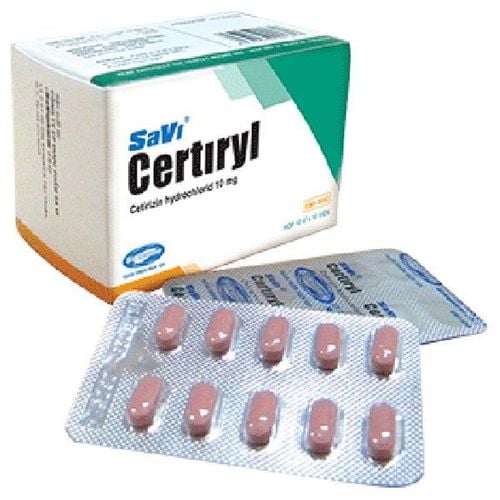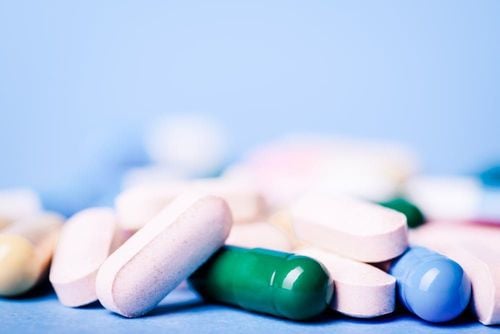This is an automatically translated article.
Clemastine is a sedative and anticholinergic antihistamine used to treat the symptoms of allergic rhinitis. You may be asked to use this medicine as often or only as needed. However, some types of allergies can recur repeatedly and you must continue to use Clemastine.1. What is Clemastine?
Clemastine is an anti-histamine (antihistamine) that comes in tablet and liquid form for oral administration.
Medicines used to relieve symptoms of hay fever, allergies, and the common cold including sneezing, runny nose, and red, itchy, watery, runny nose. Medicines help control the symptoms of these conditions but do not treat their cause or speed recovery.
The drug works by binding to the histamine H1 receptor thereby blocking the action of endogenous histamine, which then leads to a temporary relief of negative symptoms brought about by histamine.
2. Are there any special precautions when using Clemastine?
2.1. Before taking Clemastine
Tell your doctor if you are allergic to Clemastine or other antihistamines. Ask your doctor or pharmacist or check the packaging for a list of ingredients.
Tell your doctor if you are taking monoamine oxidase (MAO) inhibitors such as Isocarboxazid, Phenelzine, Selegiline and Tranylcypromine. You also tell your doctor about any prescription and over-the-counter medicines, vitamins, nutritional supplements and herbal products you are taking or plan to take, especially of: Cold and fever medicines hay fever or other allergies; medicine to treat depression or seizures; muscle relaxants; sedative; sleeping pills; and tranquilizers. You may need to have your medication dose changed or carefully monitored for side effects.
Tell your doctor about your other medical problems such as:
Asthma or lung disease Glaucoma Ulcers Difficulty urinating (due to an enlarged prostate, a blockage in the bladder) Intestinal obstruction or ulcers stomach Heart disease High blood pressure Convulsions Overactive thyroid Women who are pregnant, planning to become pregnant, or are breastfeeding may need to be careful while using Clemastine .
This medicine may cause drowsiness, so do not drive a car or operate machinery until you know how this medicine affects you.
Limit alcohol use while taking this medication as it can make side effects worse.
Older adults should generally not take Clemastine because it is not as safe or effective as other medications that can be used to treat the same condition.
If a dose is missed: This medication is usually taken only as needed. However, if regular dosing is required, take the missed dose as soon as you remember, skip the missed dose, and resume your regular dosing schedule if it is almost time for your next dose. Do not take a double dose to make up for it.
2.2. Information on dosage and use of Clemastine
Usual dose for adults and children over 12 years of age with allergic rhinitis, urticaria, allergic reactions:
Start with 1.34mg orally twice a day. The dose may be increased as required, but should not exceed 2.68mg, orally 3 times a day. Usual children's dose for allergic reactions, allergic rhinitis, urticaria:
Children under 6 years old: 0.335 to 0.67mg/day orally divided into 2 or 3 times. The maximum daily dose is 1.34mg. Children 6 to 12 years: 0.67 to 1.34mg, taken twice a day. The maximum daily dose is 4.02mg. Take Clemastine with or without food. If you are taking the liquid form of this medication, measure out the liquid medication using a graduated volumetric cup.
Call your doctor if symptoms do not improve after 7 days of treatment, or if you have a fever accompanied by headache or skin rash.
3. Clemastine side effects
If you have any of the following signs of an allergic reaction, call an emergency center right away: hives; shortness of breath; swelling of throat, face, lips, tongue.
Older adults are more likely to have side effects. Common side effects of Clemastine may include:
Drowsiness Blurred vision Restlessness/ excitement . Dry mouth, nose and throat Dizziness Headache Some of these side effects can be serious, call your doctor right away if you have the following signs:
Difficulty urinating Changed vision Fast heartbeat or not Rash Itching Urticaria Difficulty breathing Difficulty swallowing Medications only help relieve the current allergy symptoms, it is important to avoid allergy recurrence by ways such as: Strengthening the immune system through diet reasonable, avoid chemical, physical stimuli,...




